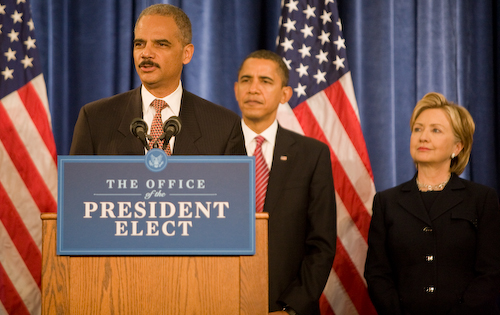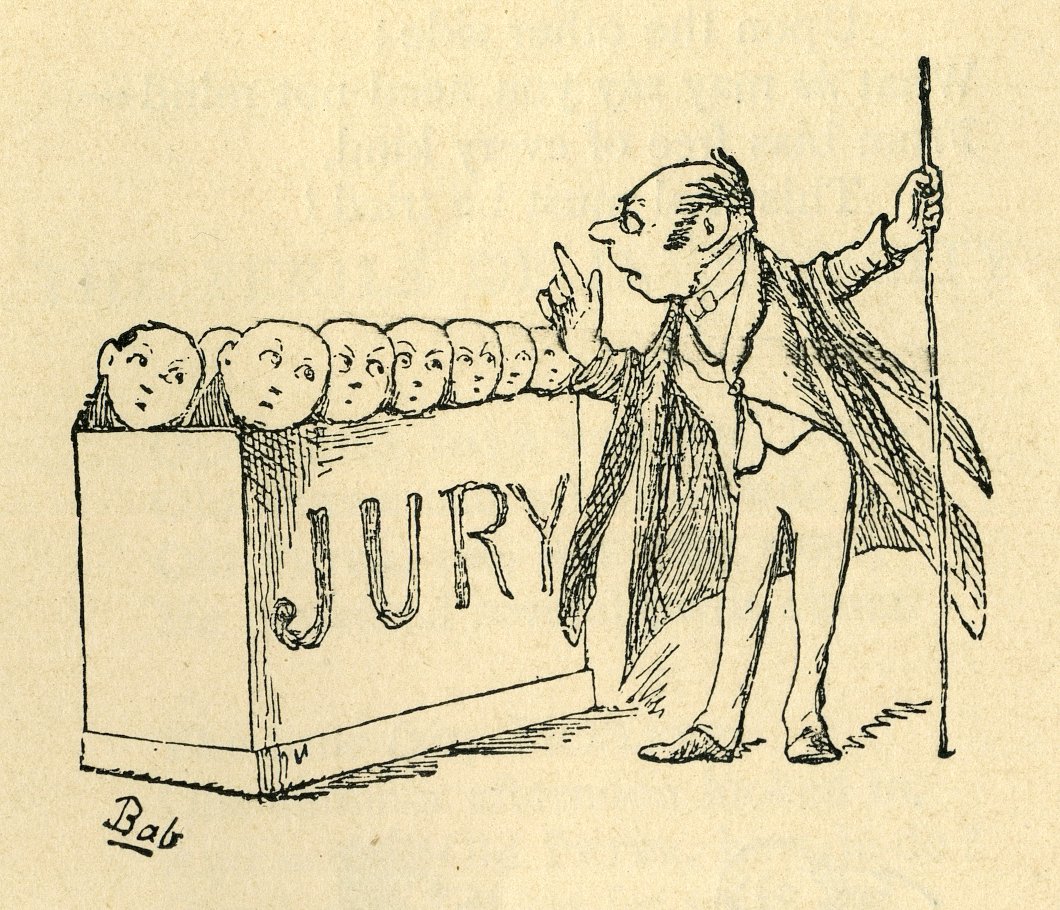On April 9, 2014, Attorney General Eric H. Holder, Jr. spoke
at the Annual Convention for the National Action Network (NAN), a civil rights
organization founded by Reverend Al Sharpton. Holder began by honoring Dr. Martin Luther
King, Jr., who was killed on April 4, 1968, almost exactly forty six years from the
date of the convention. Holder acknowledged that Dr. King dedicated
his life to building a more just society and left us with a charge to “confront
the challenges of our time.” Holder
praised NAN for their work, and for advancing “the cause of justice that has
always been at the center of [the Obama] Administration’s work.” Thus, Holder seemingly proposed “justice” as
the foundation of Obama’s criminal policy, and compared the goals of the
Administration to those of Dr. King.
Tuesday, April 29, 2014
Holder Signals Changes Coming to Criminal Law
Friday, April 25, 2014
Scaling the Courthouse Steps: Recent Challenges to the Oklahoma State Capital Punishment Secrecy Laws
This
article's purpose is to briefly highlight for practitioners some of the news
about Oklahoma's ongoing capital punishment dispute and the potential
ramifications it could have on capital punishment practitioners.
On April 21, the Oklahoma Supreme Court issued a stay of execution order for death row
inmates, Clayton Lockett and Charles Warner, in the wake of a constitutional
challenge to Oklahoma’s state law preventing inmates from learning the source
of the drugs used to kill them.
Tuesday, April 22, 2014
Supreme Court Watch Case Update: United States v. Castleman Decision
UPDATED SECTIONS: SUPREME COURT AND PRACTITIONERS
Docket Number: 12-1371
Argument Date: January 15, 2014
Decided: March 26, 2014
ISSUE:
Whether a state conviction for misdemeanor domestic assault, defined as intentionally or knowingly causing bodily injury, falls under the scope of misdemeanor crime of domestic violence for federal prosecution purposes.
Friday, April 18, 2014
Courts Apply New Pot Laws to Past Convictions
Until recently,
marijuana has been criminalized in every state, and continues to be illegal at
the federal level today. Colorado’s Amendment 64 and Washington’s Initiative 502 made possession of one ounce of marijuana
legal for persons twenty-one or older. However, both laws failed to comment on
whether these laws would apply retroactively.
A recent Colorado Court of Appeals decision held that Amendment 64 is a
significant change of law allowing, in the interests of justice, retroactive
application.
Tuesday, April 15, 2014
Indigent Defendants and the Role of Their Public Defenders
On March 18,
1963, the Supreme Court held in Gideon v. Wainwright that states are responsible for representing defendants who are
unable to afford their own attorneys. Justice Hugo Black gave the Court’s opinion
and stated, "in our adversary system of
criminal justice, any person hauled into court, who is too poor to hire a
lawyer, cannot be assured a fair trial unless counsel is provided for him. This seems to us to be an obvious truth." This obligation imposed on states
stems from the Sixth Amendment, which establishes a defendant’s right to
counsel. It also stems from the due
process clause of the Fifth Amendment, which guarantees a defendant’s right to a
fair legal process. Today however, fifty
years after Gideon was decided, the
quality of legal representation afforded to indigent defendants is concerning
in some states.
Friday, April 11, 2014
Double Jeopardy, Burden Shifting, and Deterrence in Sports’ Personal Conduct Policies
While dozens of professional athletes have been fined, suspended, or subjected to other discipline for misdemeanor and felony convictions, and often merely arrests, Will Chope, a promising twenty-three-year-old mixed martial artist, recently found himself being retroactively disciplined for something he did five years ago.
Chope was scheduled to fight at the UFC Fight Night 38 event in Brazil on March 23, 2014, but his fight was canceled the morning of the bout. The day before, bleacherreport.com published information regarding Chope’s discharge from the Air Force after he had repeatedly assaulted his then-wife and threatened her with a knife in 2009. According to the report, Chope received a sentence of five months confinement and a bad conduct discharge. Although Chope was only one fight into a three-fight contract with the UFC, his fight was canceled and he was released from the contract that morning. The UFC released this statement:
Tonight's featherweight bout between Will Chope and Diego Brandao has been canceled after UFC officials were made aware of Chope's previous military conviction. The UFC does not condone behavior of this nature whatsoever and Chope has been released from his contract.
Tuesday, April 8, 2014
Jury Nullification: A Constitutional Tool for Defense Attorneys or Anarchy Incarnate?
Controversy follows jury nullification everywhere in criminal law. The power that a jury has to refuse convicting a defendant, even when the prosecution has provided evidence beyond a reasonable doubt, understandably does not bode well with many judges and prosecutors. Jurors have the power to nullify because courts cannot overturn a not guilty verdict since this would violate a defendant’s constitutional right to a jury trial.[1] During O.J. Simpson’s trial, discussion of jury nullification stood at the forefront as Simpson’s defense attorney encouraged the jury to acquit Simpson even if they found him to be guilty so the jury could send a message to the Los Angeles Police Department.[2] Nullification has also appeared in cases where prosecutors charge abused wives for the murder of their abusive husbands, in cases where minors are involved in drug possession or distribution of narcotics.[3] The question of nullification appeared in other high profile cases, like the case of former D.C. mayor Marion Barry. Barry was convicted of only one minor count out of the fourteen charges against him by an African-American jury when he was caught on tape smoking crack cocaine, even though the trial judge in that case commented that the prosecutor has a very strong case against him.[4]
Friday, April 4, 2014
All Felonies are Serious Offenses: Ninth Circuit Upholds California DNA Collection Law
In October of last year, I wrote “Buccal Swab ‘Booking Procedures’: Lower Courts Struggle to Apply Maryland v. King,” a blog post outlining some potential problems with the reasoning in Maryland v. King, the landmark DNA collection case handed down by the Supreme Court last June. At the time, I focused on federal district court interpretations of King, but appeals courts have also begun ruling on these cases. On March 20, 2014, the Ninth Circuit, sitting en banc, issued an opinion in Haskell v. Harris upholding California’s broad DNA Collection Act.
Tuesday, April 1, 2014
Kevin Martin: Innocent.
 |
| Kevin Martin |
In order to ensure justice and credence in our legal system, a series of checks and balances are in place. Nowhere are these checks and balances so essential than in the criminal justice system. In 1982, a seventeen-year-old boy named Kevin Martin was sent to prison for over twenty-six years for a rape homicide that he did not commit based on misrepresented FBI hair analysis. Although Mr. Martin’s claim to innocence has finally been publically and scientifically acknowledged, there are still many questions left unanswered.
Subscribe to:
Posts (Atom)


